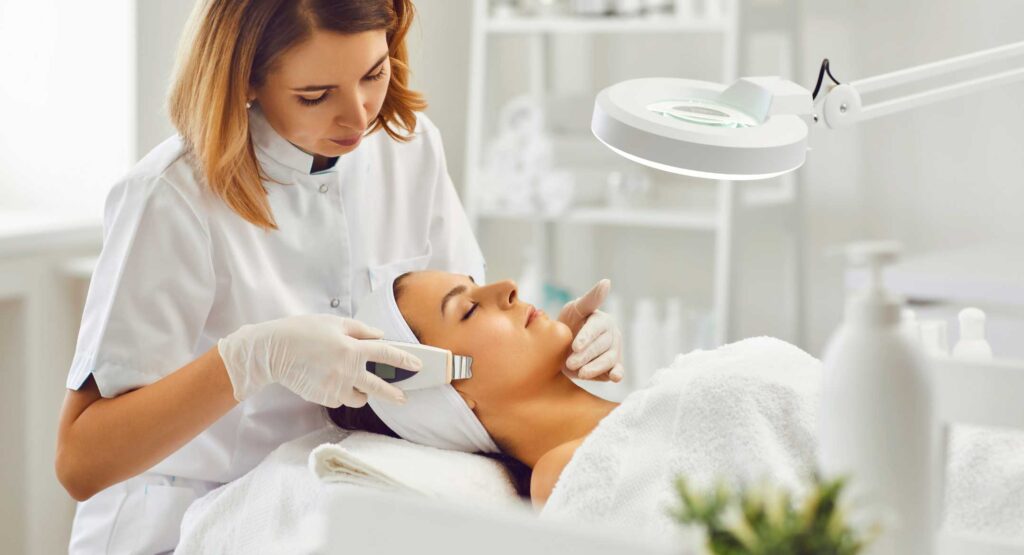In this day and age, it is seemingly impossible to do anything without seeing an ad, whether you’re going online, pumping your car with gas, or attending a sporting event. Many people are tired of seeing basic advertisements every single day.
While ads can work in some sectors, with medical practices they often fall flat when compared to other methods of outreach. The truth is, there are better ways to promote the efficacy of your dermatology practice. Public relations allow you to build a favorable reputation among your target patients while getting your practice exposure.
A Case for PR in Your Dermatology Practice
Unlike an advertisement, public relations is based on educating and informing potential patients about your expertise. Patients want to go to doctors who are trusted experts, so showing that to consumers is one of the best ways to advertise. When a patient in need of dermatologic care visits your website, they should see your credentials and sources to back it up. Press articles, national coverage and rewarded work are all relevant information to display on your website or where potential patients might look. Hiring a good public relations expert is a great way to ensure that your name, along with the relevant credentials to support it, receives publicity.
Everyone knows advertisements are paid placements. If an advertisement for your dermatology practice comes up on someone’s Instagram feed, their first thought will be “I wonder how much they paid for this.” On the other hand, if the message you are trying to spread is coming from an objective source— such as news coverage— it is more likely to attract the masses.
Because public relations utilizes editorial coverage to highlight a physician, it differs greatly from advertisements. A PR campaign works by gathering all of the information a consumer would need to know about your practice and reallocating it through the media. Media exposure has an immense impact on prospective patients and their medical choices. Truthfully, anyone can buy an ad, but only experts in their field can deploy successful PR.
If you have an angle to share, the reach can be massive. Take a sub-specialty, for example. As a dermatologist, you may excel in a specific portion of the practice over your peers— this is something worth publicizing. Dermatology is a competitive field and that special something that can set you apart from the pack could make all the difference. You should aim to have your name associated with this sub-specialty. If someone googles “best treatment for hyperhidrosis” and that happens to be an area you excel in, then your name should pop up. This doesn’t come naturally, though, and you need to deploy a successful PR campaign to achieve it. You are already an expert and your existing patients know it, but the general public doesn’t. Good public relations can help to mitigate that.
Dermatologists tend to think they might not be ideal candidates for public relations if they don’t have a new discovery or epiphany to share. In truth, most dermatologists are performing the same procedures. However, popular dermatologists employ clever phrasing to make their work sound innovative. A good PR agent is able to take your practice and relate it to popular searches and trends. Again, you are an expert in medicine, but maybe not in the often intricate workings of media. Experienced PR agents can bridge that gap.
Many physicians also believe that in order to participate in media coverage, that they must be a trained speaker— this is false. You are knowledgeable and let the audience know that is your best tool for exposure. PR can help to guide you through this.
A Case Against
A public relation route does have some cons that are worth pointing out. Unlike advertising, you don’t have direct control. When you buy an ad, you know where it will appear and how often. However, with media exposure, you don’t have control over when and where your message appears.
Like advertisements, PR costs money— which always comes with a risk. Results aren’t guaranteed. A dermatologist could spend ample time and funds on writing a proper press release only for it to not gain traction. However, hiring a good PR firm can help to reduce this risk. Still, it is necessary to note.
It can be difficult to evaluate how successful a PR campaign was in hindsight. It is easy to count all of your media mentions and published stories, but did they actually bring results? Of course, you can look at if your numbers have gone up and oftentimes that is a good indicator for whether the method worked or not, but there is still no set way to determine the impact that PR had on your desired audience.
Bottom Line
There is no upside to remaining under wraps as a dermatologist. In a field as competitive as this, it is paramount that you are accurately transmitting your expertise to the world to increase your business.
Through PR, a dermatologist can utilize objective sources to highlight what they excel in and promote it in a digestible manner. Unlike ads, which are uninvited and often clutter the screens of internet users, good public relations can take a physician to the next level. It not only spreads your message, but helps you to show up in search results and the media. You never know if a press release you do will be picked up by hundreds— effectively spreading your message far and increasing the popularity of your practice.
As with anything, public relations does have its downsides. So, as an expert in dermatology, it is crucial that you evaluate where you are now and where you need to be in the future. In doing so, you can accurately depict the best path moving forward.
Author
-

Corey L. Hartman, MD, is the founder and medical director of Skin Wellness Dermatology in Birmingham, Alabama. He is Assistant Clinical Professor of Dermatology at the University of Alabama School of Medicine.
View all posts

